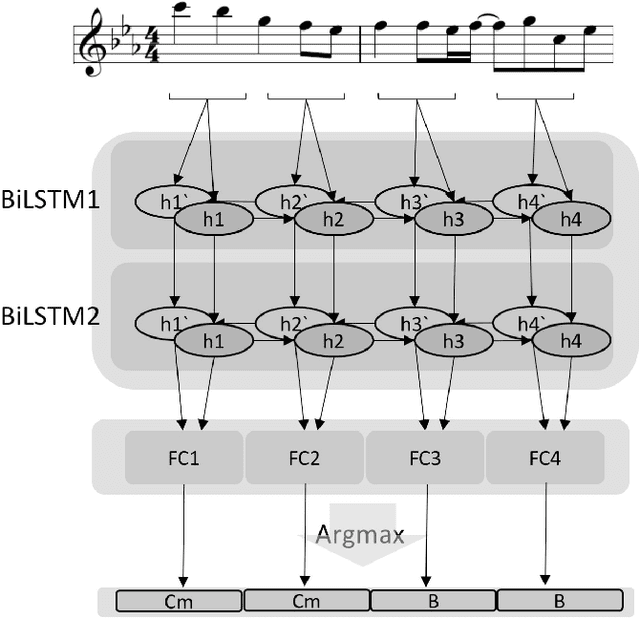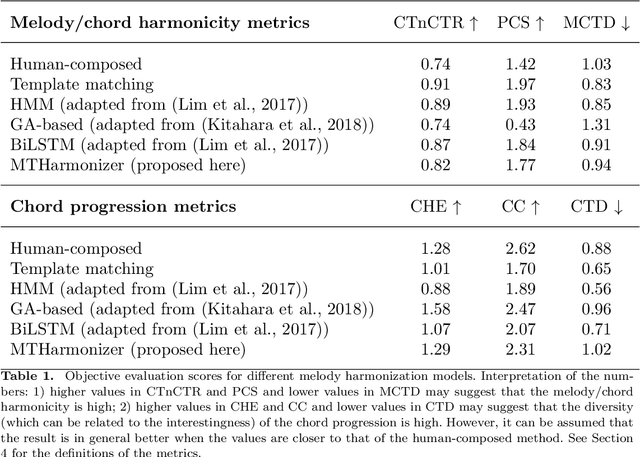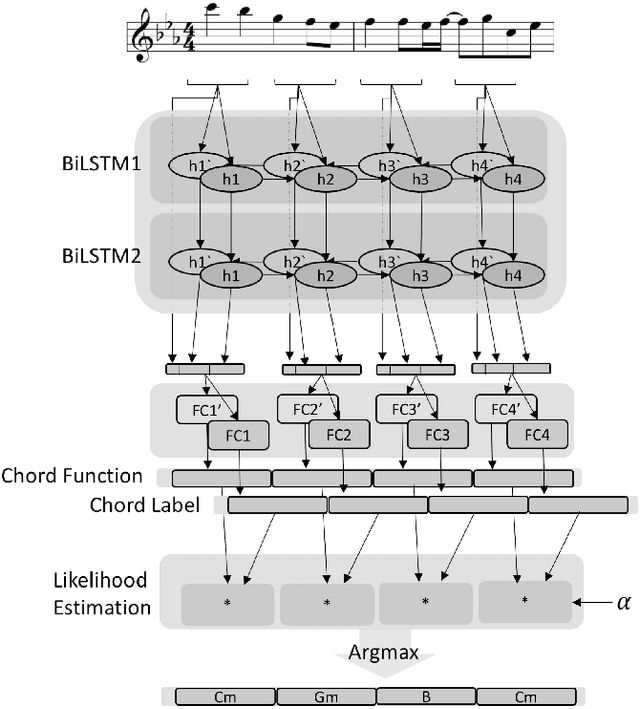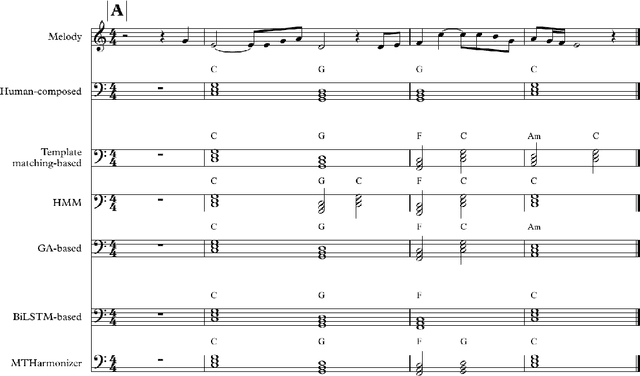Hao-Min Liu
Automatic Melody Harmonization with Triad Chords: A Comparative Study
Jan 08, 2020



Abstract:Several prior works have proposed various methods for the task of automatic melody harmonization, in which a model aims to generate a sequence of chords to serve as the harmonic accompaniment of a given multiple-bar melody sequence. In this paper, we present a comparative study evaluating and comparing the performance of a set of canonical approaches to this task, including a template matching based model, a hidden Markov based model, a genetic algorithm based model, and two deep learning based models. The evaluation is conducted on a dataset of 9,226 melody/chord pairs we newly collect for this study, considering up to 48 triad chords, using a standardized training/test split. We report the result of an objective evaluation using six different metrics and a subjective study with 202 participants.
Lead Sheet Generation and Arrangement by Conditional Generative Adversarial Network
Jul 30, 2018



Abstract:Research on automatic music generation has seen great progress due to the development of deep neural networks. However, the generation of multi-instrument music of arbitrary genres still remains a challenge. Existing research either works on lead sheets or multi-track piano-rolls found in MIDIs, but both musical notations have their limits. In this work, we propose a new task called lead sheet arrangement to avoid such limits. A new recurrent convolutional generative model for the task is proposed, along with three new symbolic-domain harmonic features to facilitate learning from unpaired lead sheets and MIDIs. Our model can generate lead sheets and their arrangements of eight-bar long. Audio samples of the generated result can be found at https://drive.google.com/open?id=1c0FfODTpudmLvuKBbc23VBCgQizY6-Rk
 Add to Chrome
Add to Chrome Add to Firefox
Add to Firefox Add to Edge
Add to Edge